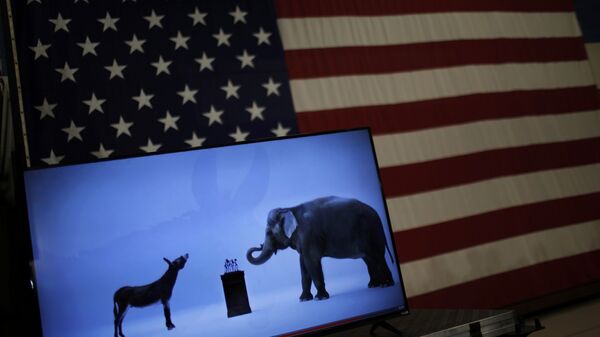In 2016, many criticised the polls in the United States, saying that they indicated that Hillary Clinton would win the presidential election, but she did not. The problem was not the polls, the professor said. The national polls leading up to the election said Clinton would win the national popular vote by 2-3 percent and she did, so the polls were accurate, he said.
"The problem is that the national polls mean nothing in US presidential elections. The reason for this is that we do not elect the president by a popular vote but by the electoral vote", Schultz explained.
To become president, one needs to win a majority of the 538 electoral votes in the US, which is 270. The 528 electoral votes are spread across the 50 American states plus the District of Columbia, he added.
"The reality is that US presidential elections are really 51 separate elections in the race to get to 270 electoral votes", Schultz said. "Four years ago if one looked at polls at the state level in the US, they were largely accurate and captured that Donald Trump was going to win."
Therefore, the professor's first point is to ignore all national polls – look to state polls to understand the US presidential race this year and concentrate specifically on the polls in seven swing states that will effectively decide the election. These states are Arizona, Florida, Michigan, Minnesota, North Carolina, Pennsylvania, and Wisconsin. In the other 43 states, the breakdown of support for the Republican or Democratic Party candidate is so strong that we can predict already how those states will vote, he says, and everything will come down to the seven swing states.
He pointed out that Georgia is not among those swing states. Many Democrats have been hoping for several years that demographic and population changes in that state might mean their party could pick it up.
"I never thought that, at least for this year. It was always a longshot for Biden to win Georgia. It is still a strong Republican state, at least for this election cycle", the professor said.
The polls suggesting a Trump lead over Biden are to be expected and no surprise, Schultz added.
Finally, he advises keeping in mind that polls are only snapshots in time and not predictors. A lot can still happen in the next 60 days to change the polls in a few swing states, but for the most part, most people have made up their minds as to how they plan to vote, with the remaining questions being whether they are in a swing state and if will they actually vote, Schultz said.
This election will be decided by a few swing voters in seven states, the professor concluded.
Polls currently show Republican Donald Trump trailing his Democrat challenger Joe Biden in the presidential election slated for 3 November.
In the swing states, Biden was ahead in most of the major battleground states as of late August, according to an average of recent surveys published on poll aggregator realclearpolitics.com. At the same time, Trump's campaign strategists said they are confident that he holds a strong position across crucial battleground states across the United States, especially in the south and midwest.



